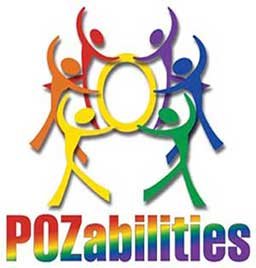News from Brisbane, at the IAS Science Conference
Hello from winter in sunny Brisbane, Australia! The International AIDS Society is holding its annual conference here this year with a focus on scientific advances. The days are full and hectic, but lots of interesting developments to share. As the conference progresses and more of the slides and material become available you can expect to see a series of blogs from the members of the San Diego contingent providing both news and perspective on what is being reported. For now, I’ll share a few quick observations on sessions I found particularly interesting.
First up was a fascinating session on the impact of HIV and Aging on mental health and cognition. I’ll provide a dedicated blog on this later, but there is good evidence of the impact of HIV on acceleration of cognitive decline.
In good news, our own UCSD researcher, David Moore, provided some results of what I call the “walnut” study that many of our members participated in. The good news is that there is clear evidence that exercise and nutrition can have significant effect on moderating the impact on our lives.
Jeff Taylor, from Palm Springs, who many of you may know participated on a panel of community members as part of this discussion.
Yesterday, there was a report from the Pasteur Institute on the Geneva patient, the 6th person to have HIV cleared from their body. The process is not one that would be used for a general cure, as many people who go through the process don’t survive it, it is always good news that HIV can be cleared and a more normal immune system reconstituted.
The process involves harvesting immune cells and then using chemo and radiation to completely destroy the existing immune system, to address advanced lymphoma, and then using the harvested cells to regrow a new immune system.
Lots of talk about long acting methods for delivery of HIV medication removing the need to take daily ART pills. From the current injectable approach to implantable medication that slowly dissolves there are a number of new methods for both treatment and PReP for delivery of medication. This can be very effective for those who only take HIV meds or deal with stigma at a personal or cultural level that make carrying HIV medication difficult.
The team who led the REPRIEVE study whose results on the use of stations in PLWH are likely to lead to unexpected changes in the standard of care for HIV, showing a 35% reduction in cardiac events for those taking these drugs. This has certainly been the biggest news in HIV treatment in the past few years. This study involved a number of folks from the San Diego area.
Also hot are talks on the global Getting to Zero efforts to stop the spread of HIV and get those impacted into treatment. Lots of new research on various strategies and studies working towards a cure, whether through clearing HIV from the body, enabling the immune system to keep the virus in check without adding medication pr providing more affordable and effective treatment options. Those of us in attendance will provide more blog reporting on these and more interesting topics over the next days.
More to come!



